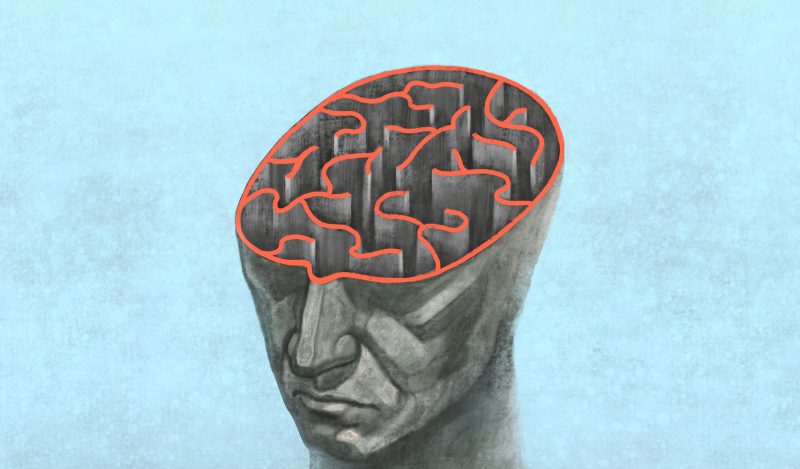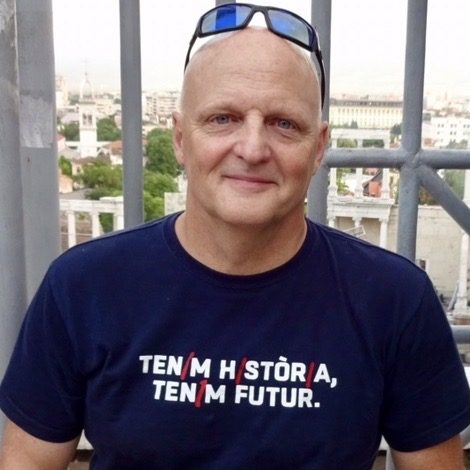I don’t know about you, but long ago I learned how to recognize when I was suffering from a cold or flu, and how best to prevent myself and others from suffering from its most deleterious effects.
I developed knowledge in this area by simply watching and listening to others, and then verifying these theoretical inputs against the observable reactions and comportments of my own body.
I do not think I am unique in this. I think that, if left to their own devices, most people can determine the difference between a sore throat with a runny nose and a malady that may be attacking their body in a more serious and systematic way.
Perhaps, I should correct myself. I believe that until 22 months ago most people could confidently engage in this time-honed process of discernment. Now I am not sure that is the case.
What has changed?
What has changed is that there has been a concerted psychological campaign to effectively insert abstract and often empirically questionable paradigms of sickness between individual citizens and their understanding of their own bodies, paradigms expressly designed to remove the locus of control from that citizen and his or her instincts and deposit it in the hands of some combination of medical and governmental authority.
“It is instructive on many levels to understand this paradox: that vision necessarily requires the collaboration of a certain degree of blindness,” writes José Ortega y Gasset. “To see it is not enough that there exist, on one side, our organs of sight, and the other, the visible object situated, as always, between other equally visible things. Rather we must lead the pupil toward this object while withholding it from the others. To see, in short, it is necessary to focus.”
Viewed in terms of the metaphors of sight, we could say that a distorting lens provided by outside forces that places a great emphasis on vulnerability and dependence rather than resilience is now mediating, and thus reconfiguring, the relationship that millions of people have with their own sense of health, as well as that of their fellow citizens.
The mechanism used to effect for this massive usurpation of individual confidence and instinct was, of course, mass testing which conferred on the government and their chosen health officials what Gabriel García Marquez suggests in One Hundred Years of Solitude is one of the greatest cultural powers of all: the power to name.
What up until early 2020 was a set of symptoms referenced identified loosely and imprecisely under the rubric of “seasonal colds and flus” and expected to be lived as an perennial and unremarkable personal matter, has with the onset mass testing not only been given a specific name—with the new possibilities for weaponization and mythologization that this process always brings with it—but imbued with an all-encompassing spectral presence.
Once again, the template used to create and justify the War on Terror is instructive here. Before the inception of that never-ending pretext for projecting US power, war largely concerned soldiers who were defined in terms of their oppositional relationship to civilians. The first were fair game as objects of attack, but the second, at least in theory, were not.
What the war on terror did was to basically redefine everyone in the world, including US citizens, as potential soldiers against all that was considered good and right by the US government. How was this done? By amassing intelligence on everyone—intelligence, of course that only “government officials” had the ability to see and manipulate—we were all turned into suspects, or if you prefer, pre-criminals.
After all, is there any one of us whose could not be made to appear “suspicious” and thus worthy of attack (be it in the form of character assassination, strategic maiming or outright legal entrapment) by a group of people with full editorial control of the most minute details of our personal life?
Before the Spring of 2020, one was either sick or well according to long-understood empirical measures. But with the advent of mass testing for asymptomatic people (with a test designed to generate copious false positives) and with it, the well-crafted, if entirely apocryphal “reality” of asymptomatic transmission, the elites gained the instant ability to portray millions of us “pre-sick,” and thus as potentially grave threats to the general welfare and, of course, potentially deserving of harsh sanctions.
And it worked. And now the generalized suspicion and fear they hoped to develop in us is lodged deep inside most people’s brains and is affecting family and community relations in very granular ways.
The results are all around us to see. A week ago, at Christmas I had a runny nose and sore throat. In past years, before such banal things had been given a name and imbued—in complete contradiction to all empirical evidence—with legendary powers of destruction, I would have made a personal decision, rooted in my knowledge of my body, and a common sense understanding of the danger I might or might not do to others, to go, or not to go, the family gathering at my sister’s house. And she would have respected whatever decided to do.
But now, thanks to the web of pre-crime/pre-sickness detection enabled by mass testing, my sniffles were now a grave community matter. What if I was “positive” and passed it on to my nephew? Then he, who is constantly being “tried” for pre-sickness as part of the new school regimen, wouldn’t be able to go to school for several days.
Totally obviated from the calculus in such a scenario was the fact that my nephew if positive might not even be near being sick as judged by empirical means, or whether—in the case my sniffles were somehow related to the now mythologized virus—his catching it could or would have any serious long-terms effects on him, his classmates, or his teacher. No, the only thing that would be considered important would be the school’s “duty” to exercise segregation in the name of a vague and empirically unprovable notion of safety.
Another youthful family member tested positive near Christmas and was told by his employer to stay home. Sensible enough.
He has been completely symptom-free now for at least a week. But he has still not been able to return to work. Why? Because the employer, deeply enmeshed in test-think and thus now completely unable to trust either my youthful relative’s word or their own powers of observation, insists he must be able to first produce a negative test. Well, guess what? There are now virtually no such tests available in the whole metropolitan area where we live. And so he sits, fully healthy and unpaid in his apartment.
This is madness.
We are, under the pressure of what is arguably the most ambitious and well-coordinated perception management campaign in history, having some of our more basic perceptual and behavioral instincts rapidly bred out of our lives. And worse yet, most people have yet to fathom or even contemplate the actual reasons why this is being done and, what it all portends for the future of human dignity and freedom.
The prime goal of all social elites is to gain and maintain their power. And for the most part, they are deeply aware of the expense and inefficiency of doing so through the constant application of physical force.
This is why, as the great scholar of culture Itamar Even-Zohar has shown with convincing clarity, they have since the advent of Sumerian civilization spent enormous amounts of energy and money on culture-planning campaigns designed to achieve what he calls widespread “proneness” among the general populace.
In short, the powerful know that creating cultural realities that allow them to “get inside the heads” of ordinary individuals and their families is the gold standard of power maintenance and extension.
Sadly, during the last 22 months millions of people around the world have not only not resisted these attempts to intrude on our individual and communal dignity, but have, in their weakened psychic state, effectively welcomed them into their lives with open arms.
And there they will stay, until more of us decide that we want to reassume the basic responsibilities of psychic adulthood and vigorously cast them back into the dark warehouse of classic authoritarian techniques from whence they were pulled by politicians working at the behest of the Deep State, Big Capital, Big Pharma and Big Tech.
Published under a Creative Commons Attribution 4.0 International License
For reprints, please set the canonical link back to the original Brownstone Institute Article and Author.









